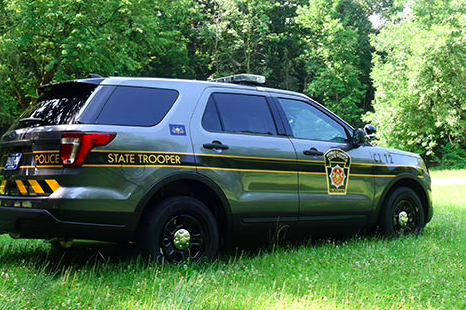
April 21, 2022
 Pennsylvania State Police/Facebook
Pennsylvania State Police/Facebook
Pennsylvania State Police Cpl. Michael Perillo was charged Friday with animal cruelty offenses stemming from a December incident in which he allegedly rammed his police vehicle multiple times into a horse that had escaped from an Amish farm.
Pennsylvania State Police have placed two troopers on administrative duty amid an investigation into the shooting of a horse that had escaped from a farm in Chester County last December. The animal was euthanized after it was shot on a highway.
State police confirmed that a criminal investigation of the incident remains ongoing to determine whether the troopers violated animal cruelty laws. The two troopers have not been publicly identified, but they work out of Troop J in Avondale, covering portions of Chester, Lancaster and York counties.
The incident began just before midnight on Dec. 28, when police received a report of a horse in the roadway along U.S. Route 1 and State Road 10. The horse got free from an Amish farm and was a few miles from Oxford, near the Lancaster County line.
The events that culminated in the animal being shot on the highway have been under investigation since March, Lancaster Online reported. Investigators learned of potential wrongdoing in the incident and put the two troopers on "restricted duty status," which limits them to administrative work pending the outcome of the investigation.
Lt. Adam Reed told Lancaster Online that the troopers euthanized the horse "after determining that it was a safety hazard to motorists."
What remains unclear is whether the troopers followed protocols for shooting and euthanizing the animal.
State police are permitted to use a firearm to kill a dangerous animal in self-defense, to defend another person or to end the suffering of an injured or sick animal if other means of doing so are not available. Troopers are required to document all actions taken in appropriate reports.
The findings of the criminal investigation will be shared with the Chester County District Attorney's Office, which will determine whether charges should be filed. After the criminal investigation, state police will conduct a separate administrative investigation.